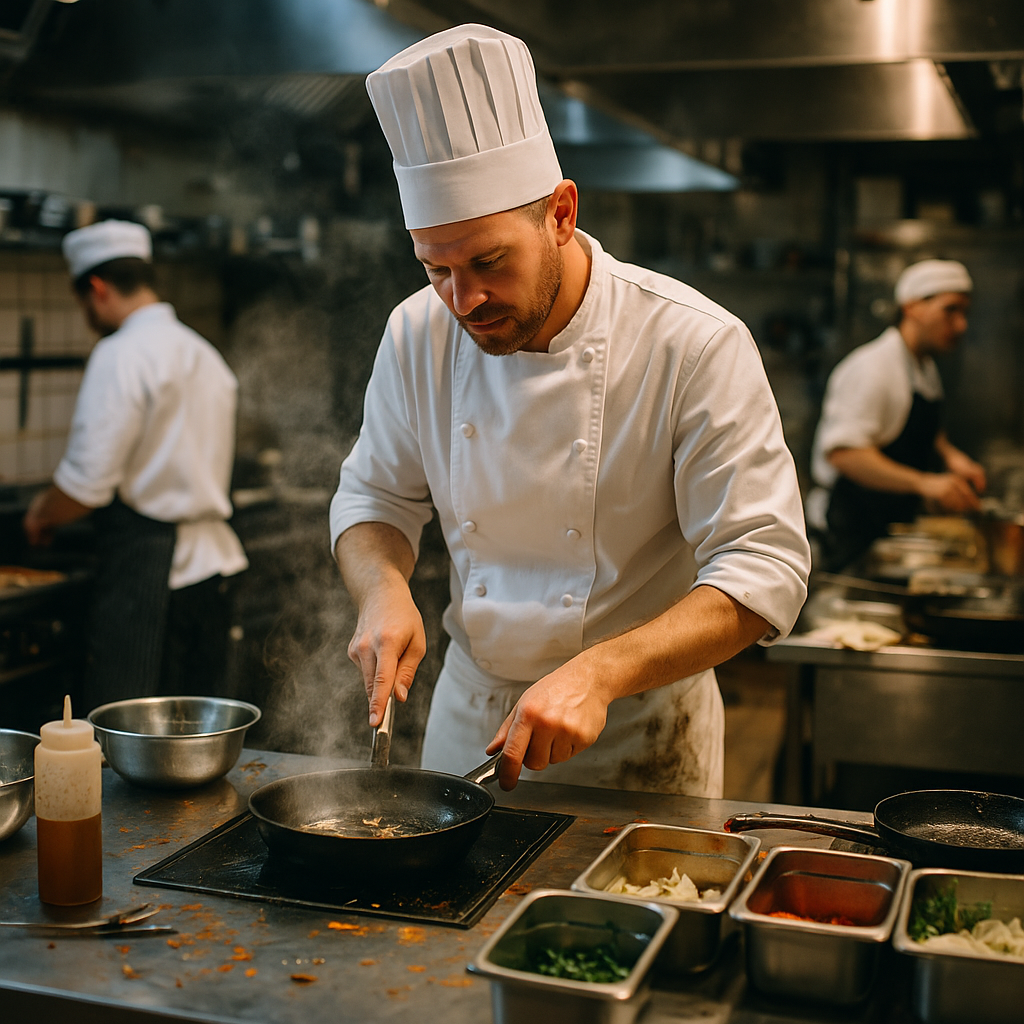Being a chef sounds exciting, right? Cooking tasty meals, working in a buzzing kitchen, maybe even wearing one of those tall hats. A lot of people see chefs on TV or social media and think it’s all about creating cool dishes and being famous. But there’s a whole other side to it that most people don’t really talk about. This isn’t to scare anyone oC. It’s just the kind of stuff that makes the job real. And if someone’s serious about working in a kitchen—or even just getting better at cooking at home—it helps to know what it’s really like.
The Kitchen Doesn’t Wait
One of the first things to understand is that kitchens move fast. Really fast. When orders start coming in, there’s no time to slow down or think too long about every little thing. Timing is everything. If one person in the kitchen is too slow, the whole team feels it. That’s why chefs need to be super organized. Everything has to be ready before the rush hits. That’s called “mise en place,” which just means having everything in its place. All the chopping, prepping, and measuring has to be done ahead of time so things go smoothly once the orders start flying in. And that prep work? It can take hours. It might not be the part that ends up on Instagram, but it’s what keeps the kitchen running.
It Gets Messy—Really Messy
There’s no way around it: cooking gets messy. Sauces splatter. Oil pops. Ingredients spill. And when working fast, things can get out of control if there isn’t a way to stay clean and protected. That’s why the right gear matters a lot. Good shoes, sharp knives, and definitely a solid apron. Wearing regular clothes in a kitchen isn’t just a bad idea—it’s asking for a stain or burn. A good apron isn’t just about staying clean; it’s about safety and looking professional. These chef aprons are made to handle the heat, spills, and stress of real kitchen work. They’ve got deep pockets, strong fabric, and they actually stay in place. It’s one of those things that seems small until you’ve worked a whole shift without one. Then it becomes something you don’t forget again.
Mistakes Happen All the Time
Even the best chefs mess up. Something burns. A sauce comes out too salty. A plate goes out late. It’s part of the job. What matters is how the mistake gets fixed. Most kitchens don’t have time for panic. If something goes wrong, the key is to stay calm, fix it fast, and move on. No one’s perfect, especially when first starting out. Learning from mistakes is actually one of the fastest ways to get better. Chefs remember what went wrong so they don’t do it again. That’s how skills grow over time.
Chefs Work When Others Don’t
Holidays, Weekends, Late nights, That’s when restaurants are busiest. While most people are out eating with friends or family, chefs are in the kitchen making it all happen. It takes real dedication to stick with it. Some shifts last 10 hours or more, and there’s barely time to sit. There’s a lot of standing, lifting, bending, and rushing. At the end of the day, it’s exhausting. But for people who love it, there’s something about the challenge that makes it worth it. Every shift feels like a race, and finishing strong feels great.
It’s Not All Fancy Dishes
A lot of cooking in professional kitchens is about speed and consistency. That means making the same dish over and over again—and making sure it tastes exactly the same every time. It’s not about always trying new ingredients or making wild recipes. That part comes later, after learning the basics and proving reliability on the line. Before that, it’s all about building trust and showing that each job can be done well. The creative side of cooking is real, but it’s built on hours and hours of repetition. First, chefs learn how to do it right. Then they earn the chance to do it their own way.
Respect Is Earned, Not Given
Kitchens run on teamwork, and the head chef—called the “chef de cuisine” or “executive chef”—makes sure everything stays on track. But no matter the role, everyone has to work together. That’s why respect is so important. It doesn’t come just from knowing how to cook. It comes from showing up, working hard, staying humble, and helping others. Chefs who’ve been doing this for years can spot someone who’s serious in seconds. Even if someone is new, they can still earn respect by being reliable, asking smart questions and showing a real effort to improve.
The Little Things Make a Big Difference
Good chefs notice everything. A smudge on a plate. A slice of tomato that’s too thick. A piece of meat that isn’t quite done. Details matter more than most people realize. That’s what separates okay food from amazing food. It’s not always about using expensive ingredients or fancy tools. It’s about caring enough to fix the small stuff—every time. Learning to spot those details takes practice. But once it clicks, it changes the way food is made forever.
Chefs Never Stop Learning
Even after years in the kitchen, there’s always more to learn. New recipes, new tools, better techniques. Cooking is one of those things where no one ever truly knows everything. That’s actually one of the coolest parts of the job. It keeps things interesting. There’s always a new dish to try, a better way to do something, or a flavor combo that surprises everyone. The best chefs stay curious. They ask questions. They try new things. And they keep learning, even when they’re the ones teaching others.
What Really Matters
So, being a chef isn’t just about knowing how to cook. It’s about working under pressure, staying sharp, and being part of a team. It means doing the unglamorous stuff—like prepping onions for two hours—and still giving it full effort. Yes, it can be hard. It can be messy and stressful and tiring. But it can also be super rewarding. Creating food that people enjoy, being proud of each dish, and feeling part of something bigger? That’s the part no one sees—but it’s what makes it all worth it.
Quick Recap
Here’s what future chefs should keep in mind. Kitchens are fast and demanding. The right gear (especially a good apron) really helps. Mistakes will happen—and that’s okay. Cooking is about teamwork, not just skills. Details matter more than most people realize. Learning never stops. Anyone who’s serious about becoming a chef doesn’t need to be perfect. They just need to show up, stay focused, and keep improving. The rest will come with time.










